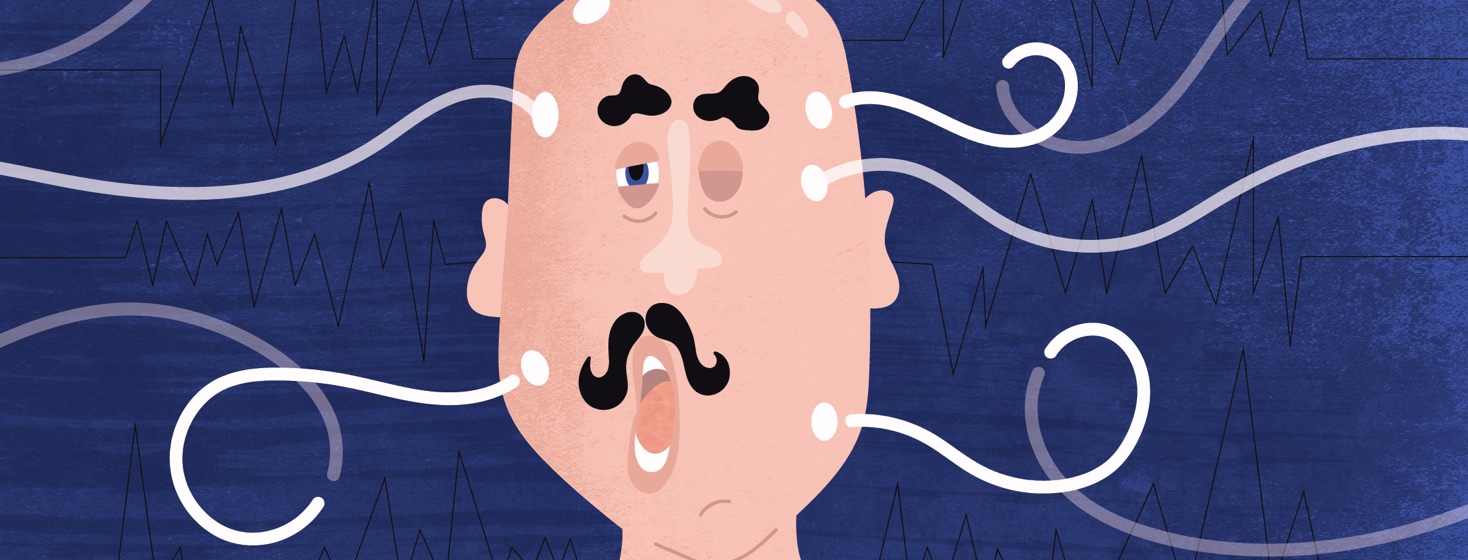Why Sleep Studies Aren't Used to Diagnose Insomnia
Why aren’t sleep studies used to diagnose insomnia? This question has been asked a lot recently in our community.
For people who struggle with chronic insomnia, a sleep study sounds like a magic bullet. You might imagine that a few hours in the sleep lab will uncover the “real" cause of your insomnia or a new treatment that you’ve not tried before. Unfortunately, a sleep study is unlikely to deliver.
What is a sleep study?
Polysomnography (PSG) is the medical term for what many of us call a “sleep study.” A PSG can be performed in a sleep medicine laboratory or in the patient’s home. Either way, a variety of measurements are collected during the sleep period. Some examples include:
- Brain waves are measured by electrodes, tracking your progress through different stages of sleep.
- Your heart rate and blood oxygenation are monitored. A microphone may also be used to record whether you snore and how loudly.
- Sensors attached to your legs and arms assess for restless legs syndrome and/or periodic limb movement disorder.
- A belt may be placed around your chest or torso to assess whether you are having trouble breathing.
A PSG may last one night or several nights. Data is downloaded by a technologist and interpreted by a sleep medicine physician.
It can be hard to get a sleep study
As you can imagine from that description, a sleep study can be costly and time-intensive.1
- Cost: A PSG administered in a sleep lab can cost several thousand dollars. Even in-home studies can range from $150 to $300 for the test alone.
- Waiting time: It can take a long time to schedule a sleep study once you’ve been referred for one. Estimates range from a few weeks to a year in the United States.
Given the costs and time commitment, PSGs are only recommended under specific circumstances.
Why sleep studies are not used to diagnose insomnia
Insomnia is a subjective disorder
There are no strict guidelines on how many hours you should be sleeping, for example. Instead, insomnia is diagnosed largely through the patient’s reported dissatisfaction with the amount or quality of sleep that they are getting. A PSG can’t measure this. A detailed clinical interview and sleep diary provides this information more effectively.
Sleep quality and quantity during PSG
If you sleep in an unfamiliar place (like a sleep lab), your sleep will likely be disrupted. Even if you can complete a sleep study at home, being hooked to electrodes, belts, and sensors is uncomfortable and interferes with sleep. In fact, it’s expected that your sleep quality and quantity during PSG will be different than during an average night. This limits how much insight can be provided about your insomnia.
Effective diagnostic tool for other sleep disorders
PSGs are very effective for diagnosing sleep-related disorders such as restless legs syndrome and sleep apnea. But quick screening tools also exist and it’s possible that your doctor already screened you for these conditions, even if they didn’t tell you. A sleep study would have likely been recommended if you screened positive for a sleep disorder besides insomnia.
Factors that keep insomnia going
The most effective treatments for insomnia don’t focus on why your insomnia started, but rather on what factors are keeping it going. A PSG won’t tell you much about those factors that are perpetuating your insomnia. Again, a clinical sleep interview and sleep diary will be more helpful and will lead to the right treatment.
Better assessment tools are available
If you’ve been disappointed that your doctor hasn’t referred you for a sleep study to confirm your insomnia, I’d like to reassure you that it is not necessary for diagnosis or treatment. Better assessment tools (like clinical interviews and sleep diaries) are much more effective, accessible, and cheaper!
Have you had a sleep study for your insomnia? Did it help? Share with the community in the comments below.

Join the conversation